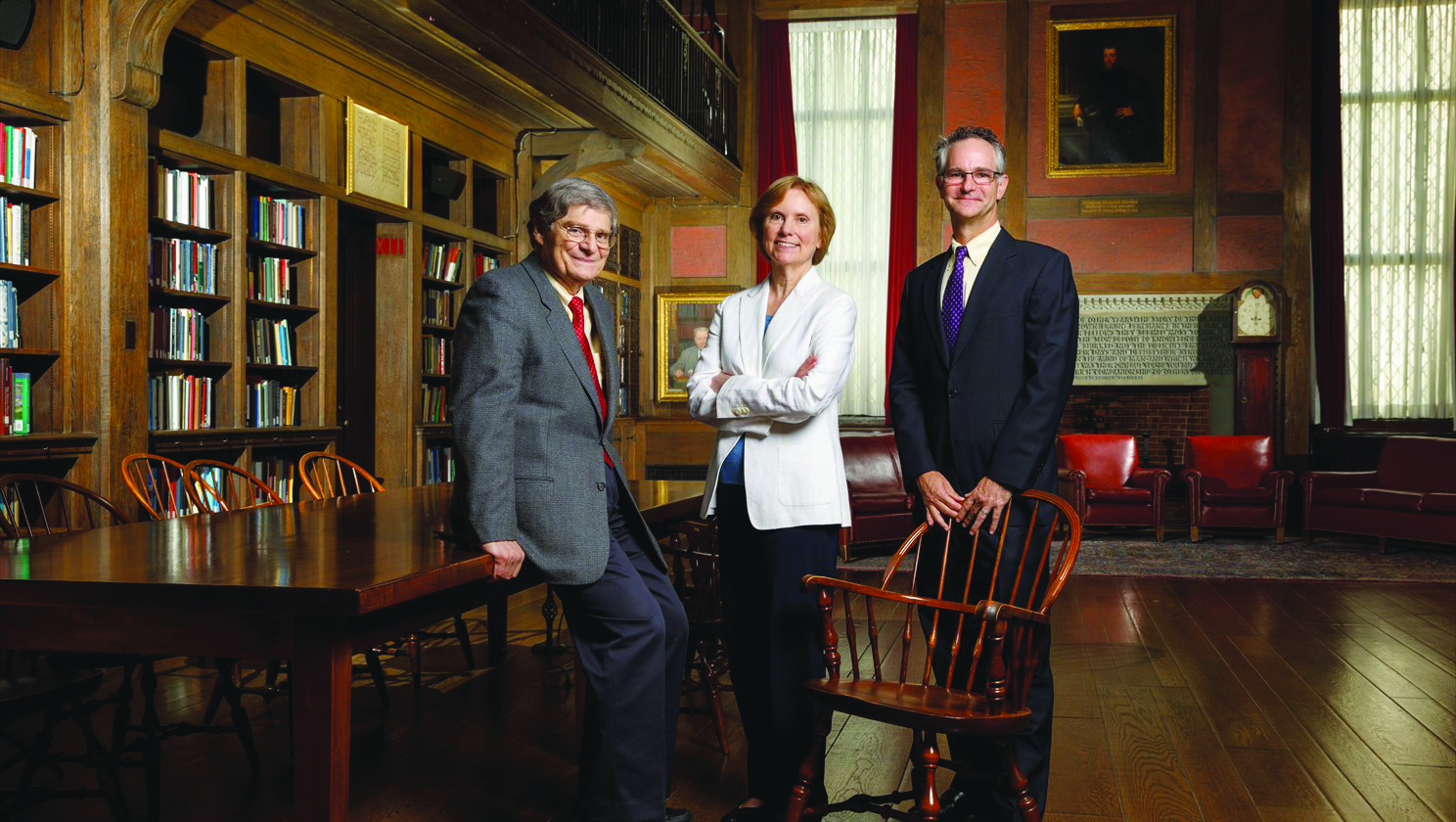
Courtesy of Robert Lisak
The School of Medicine ushered in the academic year with three new deans of scientific and faculty affairs, as faculty members stepped into roles that until this summer were consolidated under one position held by the late Carolyn Slayman.
Slayman, who passed away in December, had served as the school’s first deputy dean for academic and scientific affairs since 1995. Her role was split into three separate positions this July with the appointment of rheumatology professor Linda Bockenstedt as deputy dean for faculty affairs, professor of neuroscience and ophthalmology Michael Crair as deputy dean for scientific affairs for basic science departments and professor of laboratory medicine Brian Smith as deputy dean for scientific affairs for clinical departments.
“Having three deputy deans will enable each to focus on his or her area of expertise while allowing them to function as a team as they implement their collective vision on how to best support faculty,” said Karen Peart, the director of external communications at the Yale Office of Public Affairs and Communications. “Dividing the responsibilities also means that each of the deputy deans will spend 50 percent of his or her time in this role.”
As deputy dean for faculty affairs, Bockenstedt said she oversees faculty appointments and promotions and is working to increase transparency during these processes, as well as to create additional faculty development initiatives.
Bockenstedt, who joined the faculty in 1989, is a physician scientist in the Department of Internal Medicine, section of Rheumatology. She previously served as the associate dean for faculty development and equity at the medical school. She added that when Slayman passed away, she took over many of Slayman’s responsibilities related to the areas she is set to oversee.
Bockenstedt said her key priorities for her first year include updating and streamlining the 20-year-old recruitment and appointment processes, ensuring that faculty understand expectations for advancement and further exploring the idea of a separate track for purely clinical faculty whose promotion would be based on clinical recognition rather than scholarship.
“A major priority over the next five years is to make sure that faculty are able to align their individual career goals with the tracks available for advancement,” Bockenstedt said. “As deputy dean for faculty affairs, I will be working closely with the other two deputy deans and the leadership of the school to attain these goals.”
Smith, a physician-scientist who has also been at Yale since 1989, conducts research on antigen-antibody reactions in blood disorders and currently holds the position of chief of the clinical laboratories for Yale-New Haven Hospital.
In his new role, Smith said he will work to ensure that faculty in clinical departments have the tools they need to advance their research and careers. He will also encourage collaborations with other departments in the medical school and throughout the University.
“One of my personal priority interests is to preserve and nourish the physician-scientist at Yale,” he said.
Smith said he too has the “great fortune” of interacting with Slayman on a number of issues, which eased his transition into the new role. He added that his priorities for the coming year include fostering close relationships between Ph.D. scientists and clinicians, providing cost-effective infrastructure for research and “optimizing the culture and climate” of the medical school.
Crair, who joined Yale in 2007, will fulfill similar duties for the basic science departments as the other deputy dean for scientific affairs. Trained as a theoretical physicist, Crair studied experimental neuroscience as a postdoctoral fellow and currently runs an active research lab that developed ground breaking optical imaging techniques to study neural circuit development.
He will continue operating his lab, as well as teaching and mentoring students. The former deputy chairman of the neuroscience department, Crair said he is committed to upholding the high quality of research at the medical school despite the National Institutes of Health’s “funding ambiguities.”
“President Salovey has made growth and investment in the sciences at Yale one of his strategic priorities,” Crair said. “I view this as a remarkable opportunity to catalyze interdisciplinary research university-wide, including with the School of Medicine.”
In 1984, Slayman took the helm of what is now the Department of Genetics, becoming the first woman to head a department at the medical school.
Rachel Treisman | rachel.treisman@yale.edu | @rachel_treisman







